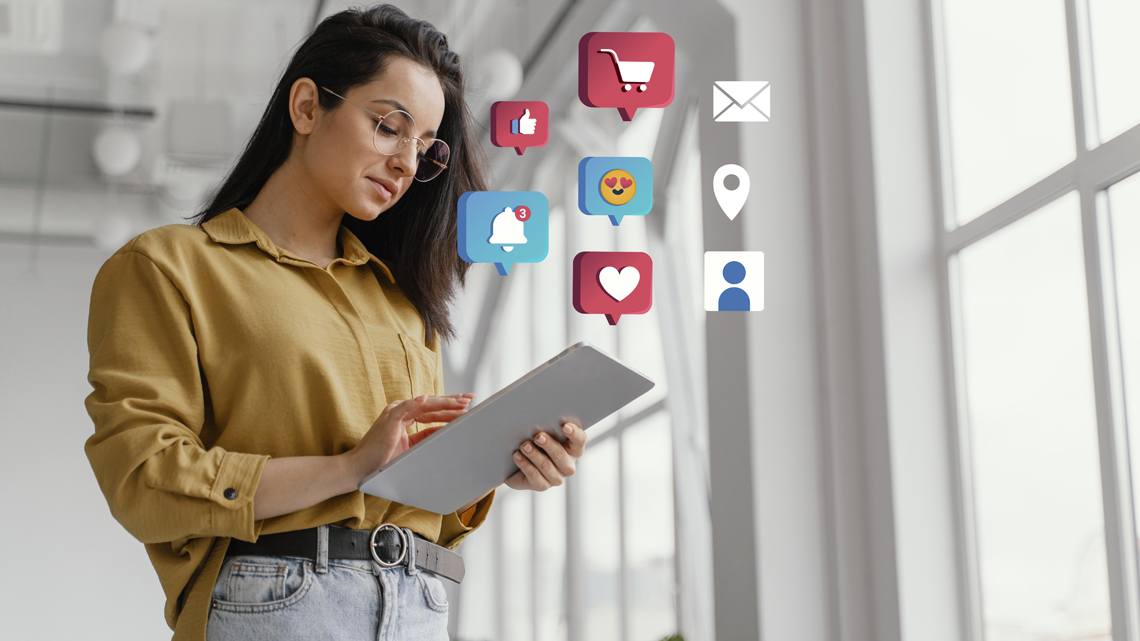
Influencer marketing in the B2B is profoundly distinct from the B2C realm. In business to business, the strategies are predominantly focused on educating and engaging decision makers, creating quality leads that impact the company’s revenue growth and positioning the brand as an industrial authority. When committing to an influencer partnership, marketers must ensure the credibility and persuasive authority to determine the effectiveness to drive valuable opportunities. This blog explores what b2b influencer marketing is, some of the future proof strategies, tips and benefits to help organizations pivot and standout in a saturated market.
What is B2B Influencer Marketing?
B2B influencer marketing is a strategic marketing approach, where businesses make partnerships with individuals who have achieved a significant influence in the industry. To determine a capable influencer, businesses have to consider factors including their previous service success, credibility, audience reach and engagement rate, as these are the differentiating factors for brand awareness and lead generation.
Unlike in B2C influencer marketing forced on general and broader range of targeting, B2B differs substantially by emphasizing on niche and industry specific target audience. The goal is to build meaningful long term relationships rather than influencing a purchase decision.
B2B predominantly targets decision makers, entrepreneurs and business managers within the niche. In this context, thought leaders, c-suite executives, industry associates, niche experts can be the most potent influencer partners.
Important Strategies and Tips for B2B Influencer Marketing
- Establish strategic objectives and measurable outcomes
Influencer marketing must foreground on the strategic business objectives such as long term relationship building, revenue generation, and building awareness. Setting measurable KPIs and outcomes will stay on track with your desired results, contributing to better revenue generation.
- Identify the right Influencers
Identifying the most appropriate influencer demands markers to carefully analyze a set of factors including relevance, credibility, reach, content quality, previous collaborations etc. When a thought leader or industry partner aligns with your eligibility criteria, organizations can prepare an enforceable contract with them. Businesses can adopt the emerging data driven tools to measure the compatibility.
- Build, authentic Long term relationships
Authenticity is one of the major differentiators of success in B2B influencer marketing, as it builds trust, drives long term impact and positions a business as an authority. B2B targeting goes beyond a sale or lead generation; it solely aims at building long term partnerships. Therefore, consider every influencer partnership as a pathway to trusted brand advocacy. Investing in genuine relationship building and allowing creative freedom will help marketers to foster authenticity.
- Leverage multi channel strategies
To accomplish a maximized outcome, distribute influencer content across multiple channels and platforms in spite of only the influencer’s platform. Some of the essential B2B channels are:
- LinkedIn can be utilized for promoting thought leadership posts and industry related discussions.
- Webinars and Virtual Events are effective opportunities to highlight your expertise.
- Video Interviews and Podcasts are suitable for driving authenticating conversations and engagement.
- Channeling Industry Forums and Communities will help brands to attract decision makers and prominent industry figures into your business.
- Integrate influencers into buyer journey
Focusing the B2B marketing strategies by catering relevant and valuable content delivery, authenticity and cultivating long term relationships, will transform into brand advocacy, leading to increased credibility, brand awareness, and differentiation in a saturated market.
- Measure ROI and effectiveness
ROI is directly linked to marketing influence. Measure the influencer campaigns by means of rate of engagement, pipeline acceleration, audience sentiment toward the brand, lead generation and lead quality. Leverage technological tools and platforms such as Traackr, Influence, and LinkedIn analytics etc.
Benefits of B2B Influencer Marketing
- Enhanced credibility and trust
Niche specific B2B influencers will position your brand as a significant authority by highlighting your industry experiences and through brand advocacy, translating to achieve audience trust and credibility.
- Expanded reach and visibility
Leveraging established voices as influencers with respect to the industry, B2B brands can accomplish greater brand visibility, enabling them to reach a broad number of potential prospects as compared to the traditional methods.
- Increased engagement
Partnering with prominent industry figures helps champion your brand voice to the forefront. As the algorithm gives more preference to authentic content delivery, it organically sparks discussions, increasing engagement and strengthening brand-prospect relationships.
- Lead generation and sales
Unlike direct marketing efforts, influencer driven promotions attract quality leads, reducing the duration of sales conversions.
- Thought Leadership
Partnering with already established industry voices will position you as an expert authority among the target audience.
- SEO advantages
High quality backlinks and mentions from industry leading influencers will enhance top ranking possibility on search engine result pages. For instance, a guest blog from a prominent industry influencer will help to showcase your web domain authority, improves visibility.
- Cost Efficiency
As opposed to traditional B2B advertising, influencer marketing is extremely cost effective. Due to following a highly targeted approach, it often delivers ROI while establishing audience trust.
Conclusion
B2B influencer marketing is a strategic imperative for accomplishing high quality leads, customer trust, and enhanced visibility within a short span of time. By identifying the right industry voices, building authentic and long term relationships. Leveraging multi channel promotions and converting influencers into brand advocates, brands can foster genuine audience engagement, trust and differentiate your business as an authority.
To read more, visit EMEA Entrepreneur.
